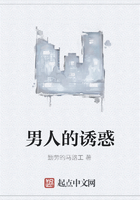JUST OVER THE BORDER--A HAIL AND FAREWELL
By the evening of the 16th the subtle hand of Hurstwood had made itself apparent.He had given the word among his friends--and they were many and influential--that here was something which they ought to attend, and, as a consequence, the sale of tickets by Mr.Quincel, acting for the lodge, had been large.Small four-line notes had appeared in all of the daily newspapers.
These he had arranged for by the aid of one of his newspaper friends on the "Times," Mr.Harry McGarren, the managing editor.
"Say, Harry," Hurstwood said to him one evening, as the latter stood at the bar drinking before wending his belated way homeward, "you can help the boys out, I guess."
"What is it?" said McGarren, pleased to be consulted by the opulent manager.
"The Custer Lodge is getting up a little entertainment for their own good, and they'd like a little newspaper notice.You know what I mean--a squib or two saying that it's going to take place."
"Certainly," said McGarren, "I can fix that for you, George."
At the same time Hurstwood kept himself wholly in the background.
The members of Custer Lodge could scarcely understand why their little affair was taking so well.Mr.Harry Quincel was looked upon as quite a star for this sort of work.
By the time the 16th had arrived Hurstwood's friends had rallied like Romans to a senator's call.A well-dressed, good-natured, flatteringly-inclined audience was assured from the moment he thought of assisting Carrie.
That little student had mastered her part to her own satisfaction, much as she trembled for her fate when she should once face the gathered throng, behind the glare of the footlights.She tried to console herself with the thought that a score of other persons, men and women, were equally tremulous concerning the outcome of their efforts, but she could not disassociate the general danger from her own individual liability.She feared that she would forget her lines, that she might be unable to master the feeling which she now felt concerning her own movements in the play.At times she wished that she had never gone into the affair; at others, she trembled lest she should be paralysed with fear and stand white and gasping, not knowing what to say and spoiling the entire performance.
In the matter of the company, Mr.Bamberger had disappeared.
That hopeless example had fallen under the lance of the director's criticism.Mrs.Morgan was still present, but envious and determined, if for nothing more than spite, to do as well as Carrie at least.A loafing professional had been called in to assume the role of Ray, and, while he was a poor stick of his kind, he was not troubled by any of those qualms which attack the spirit of those who have never faced an audience.He swashed about (cautioned though he was to maintain silence concerning his past theatrical relationships) in such a self-confident manner that he was like to convince every one of his identity by mere matter of circumstantial evidence.
"It is so easy," he said to Mrs.Morgan, in the usual affected stage voice."An audience would be the last thing to trouble me.
It's the spirit of the part, you know, that is difficult."
Carrie disliked his appearance, but she was too much the actress not to swallow his qualities with complaisance, seeing that she must suffer his fictitious love for the evening.
At six she was ready to go.Theatrical paraphernalia had been provided over and above her care.She had practised her make-up in the morning, had rehearsed and arranged her material for the evening by one o'clock, and had gone home to have a final look at her part, waiting for the evening to come.
On this occasion the lodge sent a carriage.Drouet rode with her as far as the door, and then went about the neighbouring stores, looking for some good cigars.The little actress marched nervously into her dressing-room and began that painfully anticipated matter of make-up which was to transform her, a simple maiden, to Laura, The Belle of Society.
The flare of the gas-jets, the open trunks, suggestive of travel and display, the scattered contents of the make-up box--rouge, pearl powder, whiting, burnt cork, India ink, pencils for the eye-lids, wigs, scissors, looking-glasses, drapery--in short, all the nameless paraphernalia of disguise, have a remarkable atmosphere of their own.Since her arrival in the city many things had influenced her, but always in a far-removed manner.
This new atmosphere was more friendly.It was wholly unlike the great brilliant mansions which waved her coldly away, permitting her only awe and distant wonder.This took her by the hand kindly, as one who says, "My dear, come in." It opened for her as if for its own.She had wondered at the greatness of the names upon the bill-boards, the marvel of the long notices in the papers, the beauty of the dresses upon the stage, the atmosphere of carriages, flowers, refinement.Here was no illusion.Here was an open door to see all of that.She had come upon it as one who stumbles upon a secret passage and, behold, she was in the chamber of diamonds and delight!















